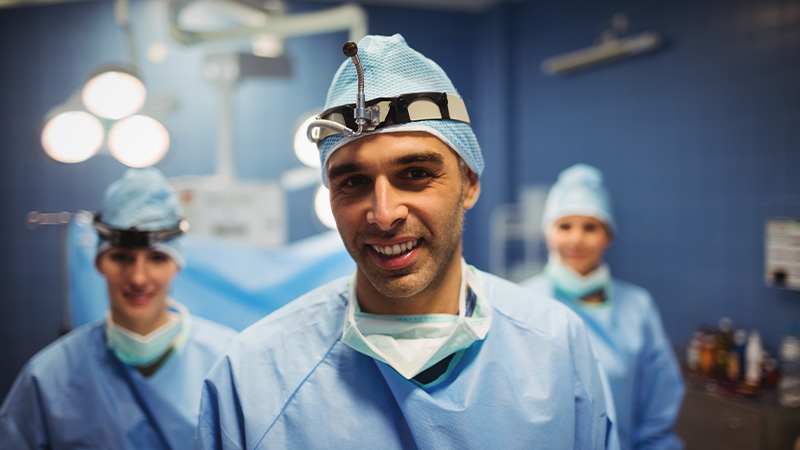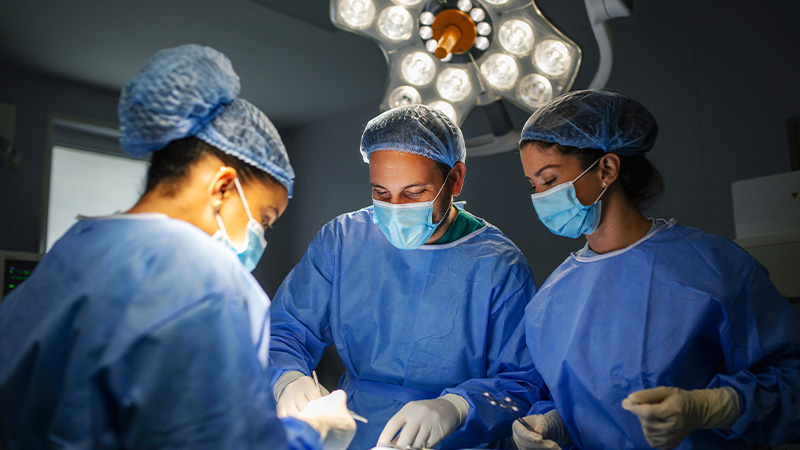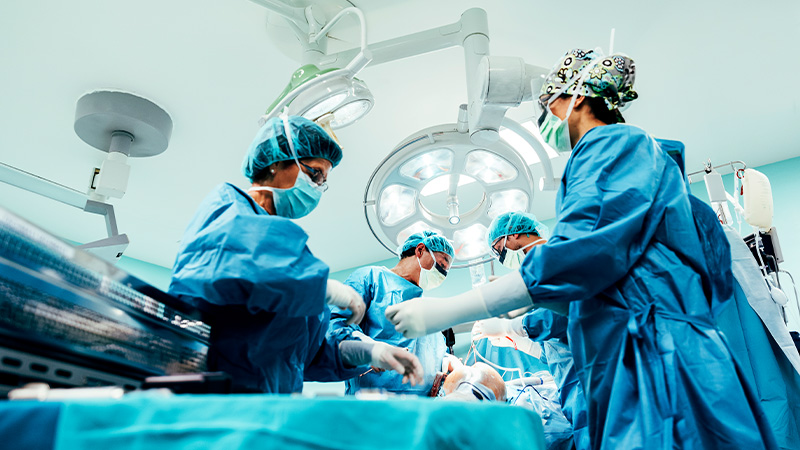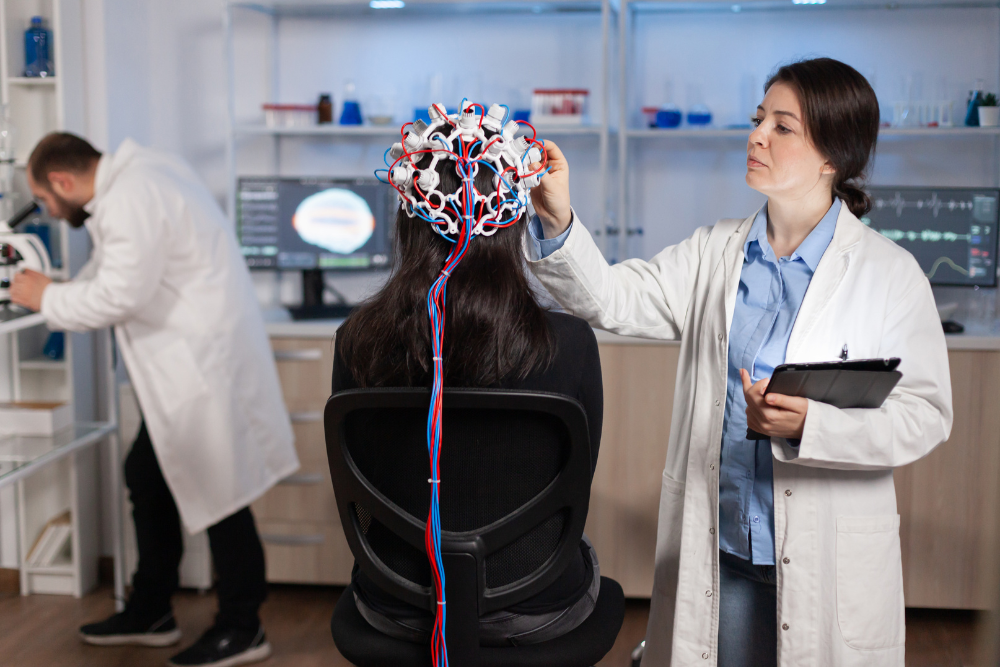Overview
General surgery encompasses a broad spectrum of surgical procedures addressing conditions affecting your abdomen, digestive tract, breast, and other soft tissues. At Parvathy Hospital, our general surgeons in Chennai, including those serving Tambaram and Chromepet, specialise in both minimally invasive laparoscopic surgery and complex open procedures. If you're searching for the best general surgeon in Chennai or the best general surgeon near you, our team is equipped with the expertise and finesse to tackle a diverse range of surgical challenges.
Common Health Problems We Address
- Abdominal problems: Hernias, gallbladder disease, appendicitis, bowel obstructions, and inflammatory bowel disease.
- Digestive issues: Gastroesophageal reflux disease (GERD), colorectal cancer, and pancreatic issues.
- Breast conditions: Benign and malignant breast tumors, breast reduction, and mastectomy.
- Vascular conditions: Aortic aneurysms, varicose veins, and lymphedema.
- Trauma and injuries: Open wounds, burns, and internal injuries requiring surgical repair.
Common Symptoms We Treat
- Abdominal pain, cramping, or bloating
- Nausea, vomiting, or diarrhea
- Changes in bowel habits (constipation or diarrhea)
- Difficulty swallowing or heartburn
- Lumps or changes in breast tissue
- Swelling or discomfort in the legs
- Unexplained weight loss or fatigue
- Visible wounds or injuries
Treatment Options
At Parvathy Hospital, We approach each case with a personalised treatment plan designed to achieve optimal results while minimising discomfort and downtime. Our diverse range of options includes:
- Minimally invasive laparoscopic surgery: Utilizing small incisions and advanced instruments for faster recovery and minimal scarring.
- Open surgery: Traditional surgical techniques employed for complex cases or larger incisions.
- Robotic surgery: Combining laparoscopic instruments with robotic assistance for enhanced precision and control.
- Endoscopic procedures: Utilizing thin tubes with cameras for diagnosis and minimally invasive interventions.
- Wound care and repair: Expert management of wounds and burns to promote healing and minimize scarring.
When to Consult a Doctor ?
Don't hesitate to seek expert advice if you experience persistent or concerning symptoms. Early diagnosis and intervention can significantly improve your outcomes and prevent complications. Consult a general surgeon if you have:
- Any of the common symptoms listed above that last for more than a few weeks.
- Difficulty performing daily activities due to pain or discomfort.
- Unexplained changes in bowel habits or blood in stool.
- Sudden or severe abdominal pain.
- Lumps or changes in breast tissue or skin.
- Visible wounds or injuries requiring medical attention.
- Any concerns about potential surgical needs or family history of relevant conditions.
Call +91 98412 98412 for medical emergencies or 044 2238 2248 / +91 98848 99091 to book an appointment.
General (FAQ) For General surgery
Symptoms of abdominal problems can vary but may include pain, bloating, discomfort, nausea, vomiting, and changes in bowel habits. If you experience persistent or severe symptoms, it's crucial to consult with a healthcare professional.
To alleviate abdominal pain, consider lifestyle modifications such as maintaining a healthy diet, staying hydrated, avoiding trigger foods, and practicing stress management. If pain persists, consult a healthcare provider for a thorough evaluation.
Abdominal pain is commonly categorized into visceral, somatic, and referred pain. Visceral pain arises from internal organs, somatic pain from the abdominal wall, and referred pain is felt in a different location than the source of the problem.
Digestive problems may manifest as symptoms like bloating, gas, constipation, diarrhea, abdominal pain, and changes in bowel habits. Persistent symptoms warrant evaluation by a healthcare professional to identify and address underlying issues.
Managing digestive problems involves dietary changes, lifestyle modifications, and, in some cases, medications prescribed by a healthcare provider. Seeking professional advice is essential for a personalized treatment plan.
Common breast diseases include breast cancer, fibrocystic breast changes, mastitis, and benign breast tumors. Regular breast self-exams, mammograms, and clinical evaluations by healthcare professionals aid in early detection and management.
Breast problems in adults may include breast pain, lumps, nipple discharge, and changes in breast appearance. These symptoms necessitate a prompt evaluation by a healthcare provider to rule out underlying issues.
Feeling a lump in the breast could be due to various reasons, including benign cysts, fibroadenomas, or, in some cases, breast cancer. Any new or persistent lump should be evaluated by a healthcare professional for a definitive diagnosis.
Treatment for vascular diseases varies based on the specific condition. It may involve lifestyle changes, medications, minimally invasive procedures, or, in severe cases, surgical interventions. Consulting with a vascular specialist is crucial for appropriate management.
Atherosclerosis, characterized by the buildup of plaque in arteries, is one of the most common forms of vascular disease. It can lead to conditions like coronary artery disease, peripheral artery disease, and stroke.
Vascular diseases can affect various organs, including the heart, brain, kidneys, and limbs. The specific impact depends on the location and extent of vascular issues.
With appropriate medical care, lifestyle changes, and adherence to prescribed treatments, it is possible to manage and improve vascular conditions. However, complete healing depends on the severity and nature of the vascular damage. Regular medical follow-ups are essential for monitoring progress and adjusting treatment plans.
















